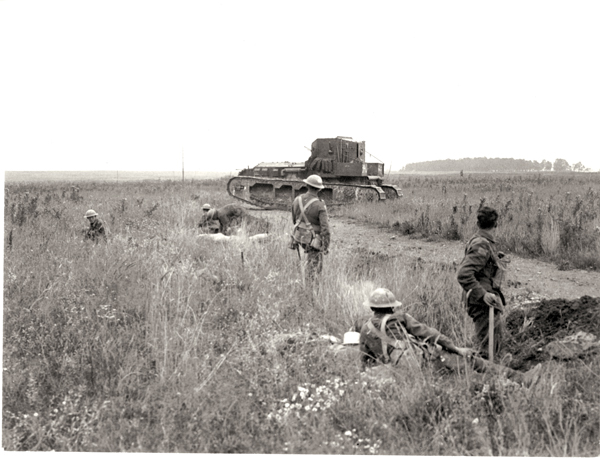
Infantry watch as a Whippet tank advances toward a German machine-gun nest.
LEGION MAGAZINE ARCHIVES
Advertisement
Home » Blog » HISTORICPHOTOBLOG » Historic WWI Photo – Advance Toward A German Machine-gun Nest

Infantry watch as a Whippet tank advances toward a German machine-gun nest.
LEGION MAGAZINE ARCHIVES
Advertisement



Get the latest stories on military history, veterans issues and Canadian Armed Forces delivered to your inbox. PLUS receive ReaderPerks discounts!

| Cookie | Duration | Description |
|---|---|---|
| cookielawinfo-checkbox-analytics | 11 months | This cookie is set by GDPR Cookie Consent plugin. The cookie is used to store the user consent for the cookies in the category "Analytics". |
| cookielawinfo-checkbox-functional | 11 months | The cookie is set by GDPR cookie consent to record the user consent for the cookies in the category "Functional". |
| cookielawinfo-checkbox-necessary | 11 months | This cookie is set by GDPR Cookie Consent plugin. The cookies is used to store the user consent for the cookies in the category "Necessary". |
| cookielawinfo-checkbox-others | 11 months | This cookie is set by GDPR Cookie Consent plugin. The cookie is used to store the user consent for the cookies in the category "Other. |
| cookielawinfo-checkbox-performance | 11 months | This cookie is set by GDPR Cookie Consent plugin. The cookie is used to store the user consent for the cookies in the category "Performance". |
| viewed_cookie_policy | 11 months | The cookie is set by the GDPR Cookie Consent plugin and is used to store whether or not user has consented to the use of cookies. It does not store any personal data. |



Free e-book
An informative primer on Canada’s crucial role in the Normandy landing, June 6, 1944.